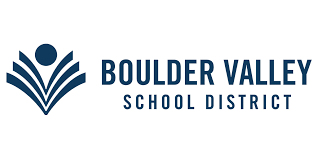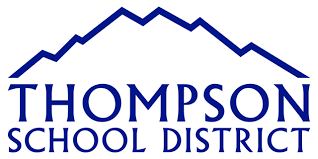You are here
Advisory Personnel Performance Evaluation Council (1338)
Promising Practices of Flexibilities, Efficiencies, and Differentiation for using the Advisory Personnel Performance Evaluation Council (1338)
Did You Know?
The Advisory Personnel Performance Evaluation Council (formerly 1338) can be a powerful group to bring together to make recommendations about the components of a local evaluation system. The use, engagement, and selection of this committee can ensure that various stakeholder groups are represented and that they are on the same page when implementing local decisions regarding the evaluation of licensed personnel. At a minimum, districts and BOCES shall have the following members on the committee: one teacher, one administrator, one principal, one resident who is a parent of a child attending a school from the district, or a participating district, and one resident who is not a parent of a child attending a school from the district, or a participating district. Additionally, BOCES must include an educator holding a special services provider (SSP) license at its organization.
Advisory Personnel Performance Evaluation Councils (1338) can be composed of any other school district committee having proper membership such as District Accountability Committees. This council must consult with the local school board as to the fairness, effectiveness, credibility, and professional quality of local evaluation systems, processes and procedures.
Webinar: District Advisory Personnel Performance Evaluation (1338) Councils
This recorded webinar is intended to deepen understanding of the requirements for 1338 councils and to highlight avenues to improve effectiveness of such councils.
Webinar Resources:
Ideas for Using the Advisory Personnel Performance Evaluation Council (1338)
Example of informing all stakeholders
While this committee requires specific representation, one district has ensured that the president of its local association is on the committee as well as a representative for each group of the SSPs it employs. This group meets quarterly to ensure that all decisions made by the committee can be communicated to their stakeholder groups in addition to the information sent out from the district.
Colorado Stories for Using the Advisory Personnel Performance Evaluation Council (1338)
Aligning Local Beliefs with Organizational Structure
The Adams 12 Five Star School District Advisory Personnel Performance Evaluation Council (1338 committee) is comprised of eighteen members representing numerous stakeholders including parents, community members, union members, teachers, principals, and central office members. As a group, the committee meets quarterly to monitor, refine, adjust and problem-solve any items connected to the district evaluation system: Advancing Professional Excellence (APEX). This committee makes recommendations using the following beliefs:
- We believe high-quality reflective educators create high performing schools.
- We believe in a growth mindset for all educators.
- We believe professional relationships built on mutual respect and transparency enhance everyone’s practice and elevate our profession.
- We believe reflective practice and professional collaboration make educators more effective.
- We believe in continuous improvement, rather than perfection.
"As a result, we believe that we, as a committee, have an obligation to live out those beliefs as we engage in our work together," says Megan Cain, Director of Personal Learning. "When we see a problem or a potential solution to our complex evaluation process we come together as a group to analyze the problem and determine next steps that will support all stakeholders across our system. One of the reasons I believe we have been able to do this effectively is because APEX lives on the learning services side of the work in our district and not in the human resources department." At Adams 12 Five Star Schools, the Director of Professional Learning, Accountability and Assessment Specialist, and President of the District Twelve Educators Association work together to plan meetings, learning, and protocols for the committee to engage in together. "This is how we continue to live out the belief in continuous improvement and working collaboratively to continue to strive towards a meaningful and impactful evaluation system," concludes Megan.
Including Student Voice to Design Educator Effectiveness 

Boulder Valley School District (BVSD) includes 56 schools serving more than 30,000 students across the Boulder area. BVSD’s Advisory Personnel Performance Evaluation Council (1338 council) or Educator Effectiveness (EE) Committee, meets twice annually with additional meetings throughout the year as specific needs arise. For the 2021-22 school year, and with the return of the inclusion of measures of student learning/outcomes (MSLs/MSOs) in educator evaluations, committee members established and affirmed their district’s values regarding MSLs/MSOs and continued to ensure a thoughtful focus on professional growth for all educators.
With an intentional focus on diverse representation, the initial step for BVSD’s EE Committee was to identify voices from the community which needed to be included, and then sought to recruit members to ensure a diverse range of perspectives would make up the committee. In addition to community and educator representation, the committee identified student representation as a vital component to establishing a responsive and effective council. Two high school students now serve on the committee and provide valuable insights and perspective. Furthermore, BVSD’s EE Committee includes active participation and input from the district’s educator association. This unique approach of including student representation allowed for all relevant parties on the council to engage with supporting the district’s mission and vision.
The diverse perspectives among BVSD’s EE Committee members foster robust discussions and recommendations related to MSLs/MSOs, as well as coaching and professional growth opportunities for all educators. As a result of building upon its value of diverse representation with the inclusion of student voices, BVSD is creating trust in the educator effectiveness process among students, staff, and leaders.
Embracing Opportunities to Review and Redesign MSLs and MSOs 

Thompson School District (TSD) serves over 16,000 students in Loveland, Colorado, and its surrounding communities. Through careful consideration and thoughtful communication utilizing the knowledge and talents of both veteran and new educators, the district’s Advisory Personnel Performance Evaluation Council (1338 council) has created a spirit of experimentation with regard to measures of student learning and outcomes (MSLs/MSOs) in which educators district-wide are engaged and invested in their professional growth.
In response to the absence of SPF and DPF data for use in educators’ evaluations for the 2021-22 school year, TSD worked with its 1338 council to conduct a comprehensive review of all aspects of the district’s educator evaluation system. Dr. Melissa Schneider, Director of Professional Development for TSD, shared that, “in a sense, this year and the process we engaged in work our system up.” She also described a renewed sense of ownership among building leaders and educators with regard to MSLs/MSOs. Specifically, that without SPF and DPF data, and with an increased reliance on locally sources data for use in educator evaluations, principals are inspired as instructional leaders given their more active role in setting the individual measures for use in MSLs/MSOs.
Once the council was established - through intentional and inclusive recruitment among stakeholders across the district - a smaller but equally representative task force was created to review and design the various processes for educator evaluations. The task force met during the summer to define all aspects of the evaluation process including weights for professional practices, percentages for MSLs/MSOs, a minimum number of observations, and observation formats for the coming school year. Members of the task force also reviewed evaluation trend data and established a timeline for the evaluation process. The task force shared these resulting recommendations with the full council for further review, and the final guidelines were communicated district-wide to ensure understanding and transparency among educators and school leaders. The process ensured increased ownership for the overall accountability to implement the guidelines for educator evaluations throughout the district and established a solid foundation from which the council will continue to refine the district’s educator evaluation systems moving forward.
Engaging the Community with a Focus on District Values 

Fountain Fort Carson School District 8 (FFC8) is located south of Colorado Springs and serves over 8,000 K-12 students in nine elementary schools, two middle, and two high schools (one alternative). FFC8 also offers early intervention Pre-K programs for three and four year olds. The district’s Advisory Personnel Performance Evaluation Council (1338 council) meets annually, and as described by Joel Hamilton, Executive Director of Human Resources, it is viewed as “a great forum for educator effectiveness and so much more.” The council ensures there is representation from both the community and from educators to establish strong relationships beyond school walls. Central to their work is the time they spend identifying their community values for educator effectiveness (EE), which leads to a shared understanding of how their EE work affects the broader community.
The council reviews the district’s values and priorities first before taking time to consider how they will recommend various weights for professional practices and measures of student learning and outcomes (MSLs/MSOs) in educator evaluations. The district intentionally chose to include voices from the community to afford full transparency around how to have effective and meaningful educator evaluations. Using the values activity from CDE (link found on the CDE EE Training Supports and Materials webpage), they were able to focus their thinking on what matters most to both their constituents and educators. In addition, they conducted a districtwide survey of educators which helped guide their final recommendations on weights for measures of student learning and priorities for educator effectiveness. In these ways, FFC8’s 1338 council has become a vital resource for the community on a range of topics.
Explore More
Find a way to get connected by contacting your regional specialist for individual support, joining a PLC with districts/BOCES wanting to explore a similar topic, or sharing your promising practice.




Connect With Us





